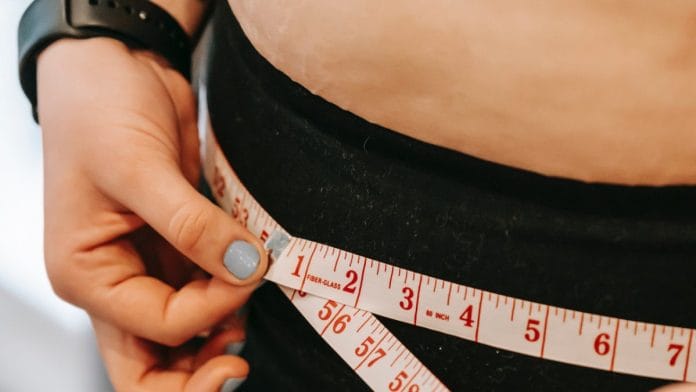Eat after 8 pm, gain weight — isn’t this a common tip you hear from just about everyone? The list goes on — don’t eat fruits before going to bed, eat small but frequent meals to increase metabolism, breakfast is the most important meal of the day. These are decades-old guidelines that are often suggested by health experts. Does science support these claims? Hardly. In my experience, most people miss out on eating important food groups just to comply with the timing they are being suggested.
Let’s find out some food timing myths that are most common in today’s diet industry.
Eating late makes you gain weight
The first on the list and most common among others is the suggestion that asks you not to eat late at night to avoid weight gain. Proponents of this theory cite two reasons — late-night eaters may end up eating more calories than usual and it involves high-calorie junk foods than healthy alternatives. However, there is no connection between these two possible propositions and weight gain during the night. In simple words, eating at night won’t make you fat if your overall food intake complies with the daily calorie and macronutrient needs.
According to the National Institute of General Medical Sciences, the human body’s circadian rhythm or biological clock directs it to sleep at night and avoid waking up or eating late. However, most research that concluded that eating late at night leads to weight gain is supported by animal studies. One example is a 2009 report that demonstrated that mice that ate during the night gained more weight than that which ate during the day.
Human studies don’t support this theory. A study involving 1,620 children found no significant difference between evening meal timing, energy intake, and weight gain. If you’re hungry after dinner, keep light snacks handy. Some great choices could be carrot sticks with hummus, a handful of nuts, or apple slices with nut butter.
Also read: Stay away from detox ‘scams’. No single food or drink can be your medical miracle
There’s a ‘best’ time to eat fruits
Fruits are usually recommended during the daytime and prohibited at night. There is no rational explanation behind this recommendation. In fact, experts suggest avoiding fatty, spicy, carbs-loaded foods before bed and including fruits such as bananas, kiwi, pineapple, and orange to increase melatonin production, a hormone that promotes quality sleep. An intervention study fed two kiwi fruits one hour before sleep to 24 participants for four weeks and found that total sleep time increased by 13.4 per cent and sleep efficiency improved by 5.41 per cent.
Fruits can be eaten anytime. However, the types and frequency of eating fruits are individual-specific.
Breakfast mandatory to lose weight
This is probably the most common myth on food timing. Breakfast kick starts your day but can be skipped if you’re following intermittent fasting or want to eat your first meal at lunch. A 2019 British Medical Journal study, reviewing existing literature, concluded that mandatory breakfast might not be a great strategy to ensure healthy weight loss. Andrew Brown, an obesity researcher from the University of Alabama, concluded his study by mentioning that the proposed effect of breakfast on obesity is only a theory with no sound scientific back-up.
Small, frequent meals spike your metabolism
This myth is based on the Thermic Effect of Foods (TEF) defined as the energy needed to digest, absorb, and process the nutrients. Generally, the TEF accounts for 10 per cent of your total calorie intake. Proponents of this theory believe that eating small, frequent meals leads to more calorie expenditure by the TEF. However, the TEF doesn’t depend on how many meals you consume per day but how many calories you take within the same period. For example, you can eat 2,000 calories in four meals by consuming 500 calories in each meal, or you can distribute it in two meals by eating 1,000 calories per meal. In both cases, the TEF would be 200 calories.
That said, eating small, frequent meals surely helps you to stay full for longer but with no evidence of improved overall metabolism.
Also read: Want to boost your child’s growth? Replace rice with millets, says India-led nutrition study
Carbs eaten at night get stored as fat
This popular myth suggests that carbs eaten at night get converted into fat. This is easy to believe and people have, for a long time, trusted it. However, the nutritive value doesn’t ‘change’ after sunset. The origin of this claim is unknown. One probable reason behind this myth could be that after 6 pm, your metabolism gets slower and carb-rich foods that you eat get stored as fat. However, evidence suggests that while you sleep, your metabolism doesn’t slow down, but speeds up, especially if you’re regularly engaged in physical activity.
The body repairs itself while you sleep and needs fuel and macronutrients to support the process. Protein and carbs in combination could be the best nutrition your muscle can get to repair itself after rigorous physical activity. One study demonstrated that people who ate 80 per cent of their carbs at night reported more weight loss, improved body fat percentage, and reduced waist circumference. Additionally, carbs help you fall asleep faster.
Key takeaways
Nutrition is personalised. Most concepts regarding food timings are not supported by scientific evidence. However, individual modifications are possible to optimise daily diet. Don’t pay much attention to when to eat, rather focus on eating versatile foods regularly to get maximum benefits, prevent nutritional deficiencies, and keep diet-related diseases at bay.
Dr Subhasree Ray is Doctoral Scholar (Ketogenic Diet), a certified diabetes educator, and a clinical and public health nutritionist. She tweets @DrSubhasree. Views are personal.
(Edited by Humra Laeeq)






